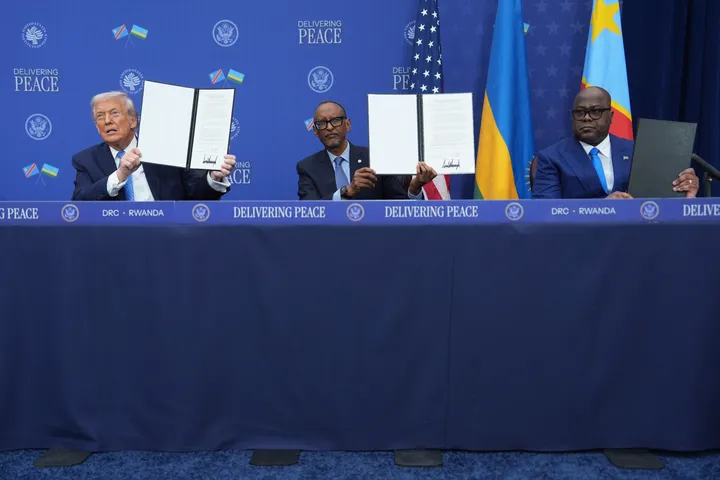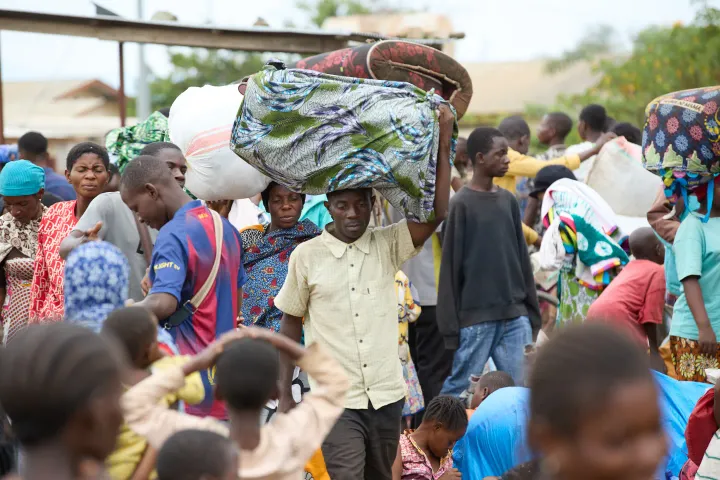By Kudra Maliro
The sights and sounds of the energetic, two-week long carnival always brings the sleepy town of Bonoua to life. Bonoua is located some 50 kilometres east of Abdjan, the economic capital of Côte d'Ivoire to life.
The Popo Carnival featuring songs, dances and a colourful display of traditional garments, has its origins in the modification of the annual yam festival by the young Abourés of Bonoua in 1946.
The generation of young people who have now become adults have christened the festival "Popo Carnival," modernising and diversifying the cultural event to include parades from other ethnic communities in the West African nation.
Popo means "mask" in the Aboure language.
The carnival became part of the customs of the Abouré people in 1972, who each year, during the Easter period in April, get together for the festival.
In an interview with TRT Afrika, Junior Kouassi, Popo Carnaval's communications secretary, said the Bonoua Popo festival aims to compete with Brazil's Rio de Janeiro Carnival, which welcomes nearly two million festival-goers.
"In 2023, we welcomed nearly seven thousand festival-goers a day for a fortnight, and our aim is to rival the world's biggest festival. The idea is to learn and do as they do, but also to bring more cultural activities, promote our cultural values, our habits and customs, and make known the culture of the Abouré people" Kouassi said.
The town of Bonoua welcomed delegations from Brazil, Trinidad and Tobago during this year's festival.
The Aboure, like many other communities in Côte d'Ivoire still have kings and queens who play a significant traditional role.
"The highlight of the carnival is a parade with the arrival of the king, who wears a golden crown and a long robe. He is accompanied by men beating drums and blowing ox horns", says Mr Kouassi.
The carnival also includes a football match, sports days, cooking competitions, a beauty contest and several theatrical performances.
The purpose of these performances is to keep alive the heritage of the Aboure people and to remind them of what they have won and lost.
"It's a period of evaluation to see if we've lost anything of what our parents left us," Kouassi reckons.
According to the organisers, the creation of the integration village was one of the major innovations during this year's festival.
























